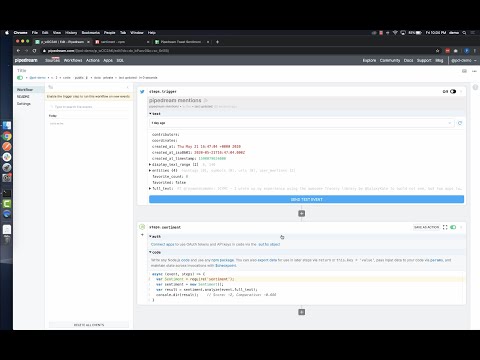What do you want to automate
with Google Sheets and Delay?
Prompt, edit and deploy AI agents that connect to Google Sheets, Delay and 3,000+ other apps in seconds.
Trusted by 1,000,000+ developers from startups to Fortune 500 companies
Popular Ways to Connect Google Sheets with Delay#
Popular Google Sheets and Delay Triggers#
Emit new event each time a comment is added to a spreadsheet.
Emit new event each time a row or rows are added to the bottom of a spreadsheet.
Emit new event each time a row or rows are added to the bottom of a spreadsheet.
Emit new event each time a row or cell is updated in a spreadsheet.
Popular Google Sheets and Delay Actions#
Add a single row of data to Google Sheets. Optionally insert the row at a specific index (e.g., row 2 to insert after headers, shifting existing data down). See the documentation
Delay the execution of your workflow for a specific amount of time (does not count against your compute time).
Add multiple rows of data to a Google Sheet. See the documentation
Get all values or values from a range of cells using A1 notation. See the documentation
Create conditional formatting with color scales or custom formulas. See the documentation
Overview of Google Sheets#
The Google Sheets API allows for the creation, reading, updating, and deletion of data within Google Sheets, enabling a robust platform for spreadsheet management and data manipulation. Through Pipedream, you can craft serverless workflows that respond to various triggers, such as webhook events, emails, or scheduled times, to interact with Google Sheets. This synergy can automate reporting, synchronize data across applications, manage inventory, track leads in a CRM, or even conduct survey analysis by updating and retrieving sheet data on the fly.
Connect Google Sheets#
import { axios } from "@pipedream/platform"
export default defineComponent({
props: {
google_sheets: {
type: "app",
app: "google_sheets",
}
},
async run({steps, $}) {
return await axios($, {
url: `https://www.googleapis.com/oauth2/v1/userinfo`,
headers: {
Authorization: `Bearer ${this.google_sheets.$auth.oauth_access_token}`,
},
})
},
})
Overview of Delay#
The Delay API in Pipedream is a built-in function that allows you to pause a workflow for a specified amount of time. This can be incredibly useful when you need to stagger API calls to avoid rate limits, wait for an external process to complete, or simply introduce a delay between actions in a sequence. With precision up to milliseconds, the Delay API provides a simple yet powerful tool for managing timing in automation workflows.
Connect Delay#
export default defineComponent({
async run({steps, $}) {
// Specify the amount of time to delay your workflow in milliseconds
return $.flow.delay(5000)
},
})
Related Videos#



Community Posts#


